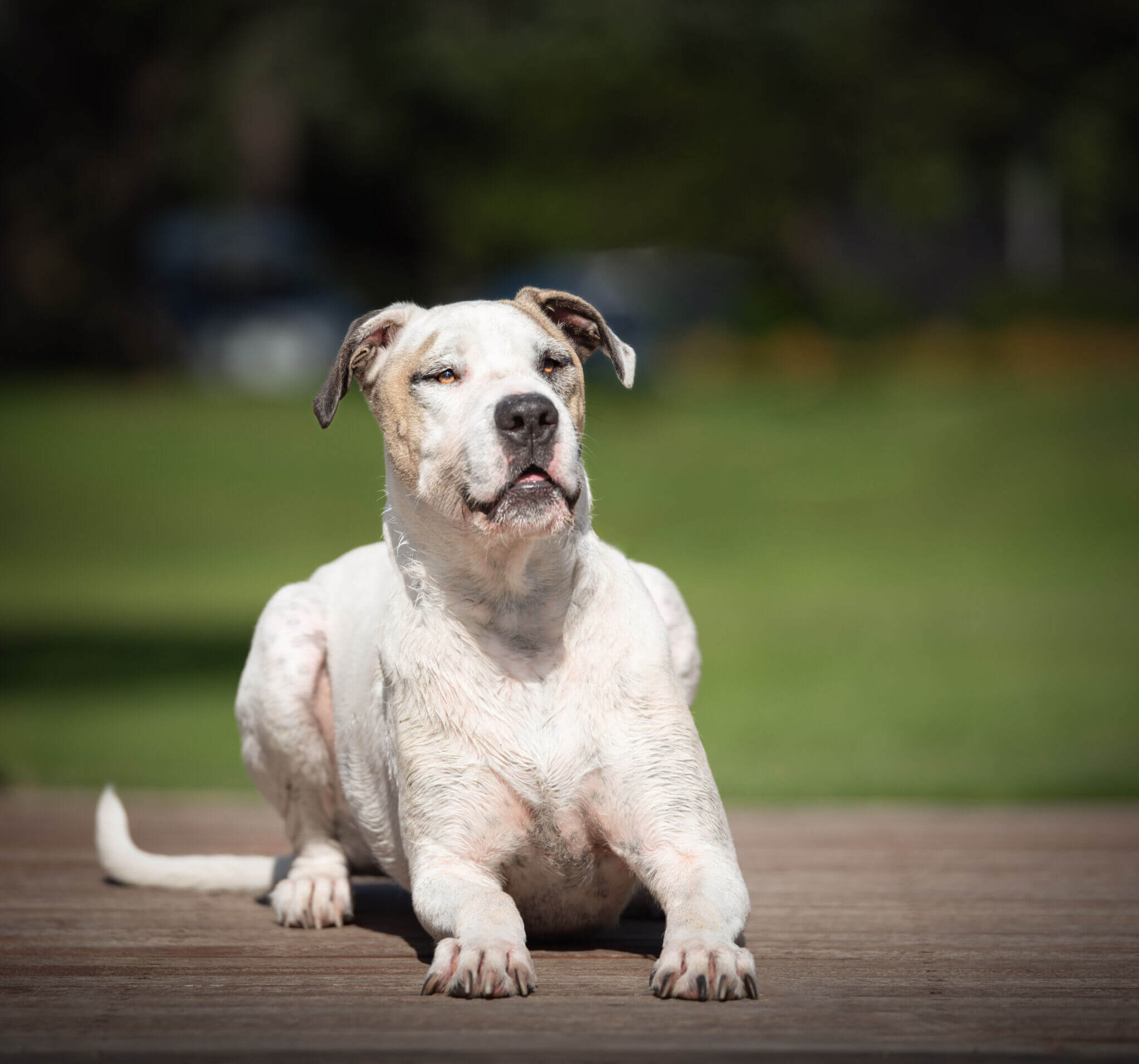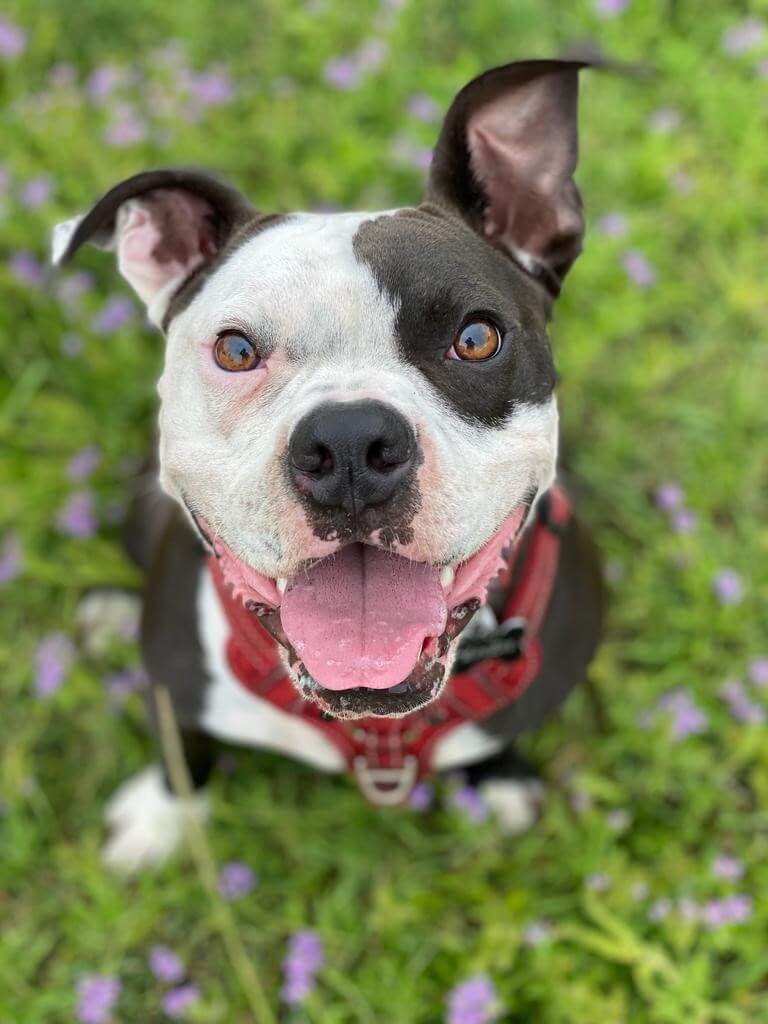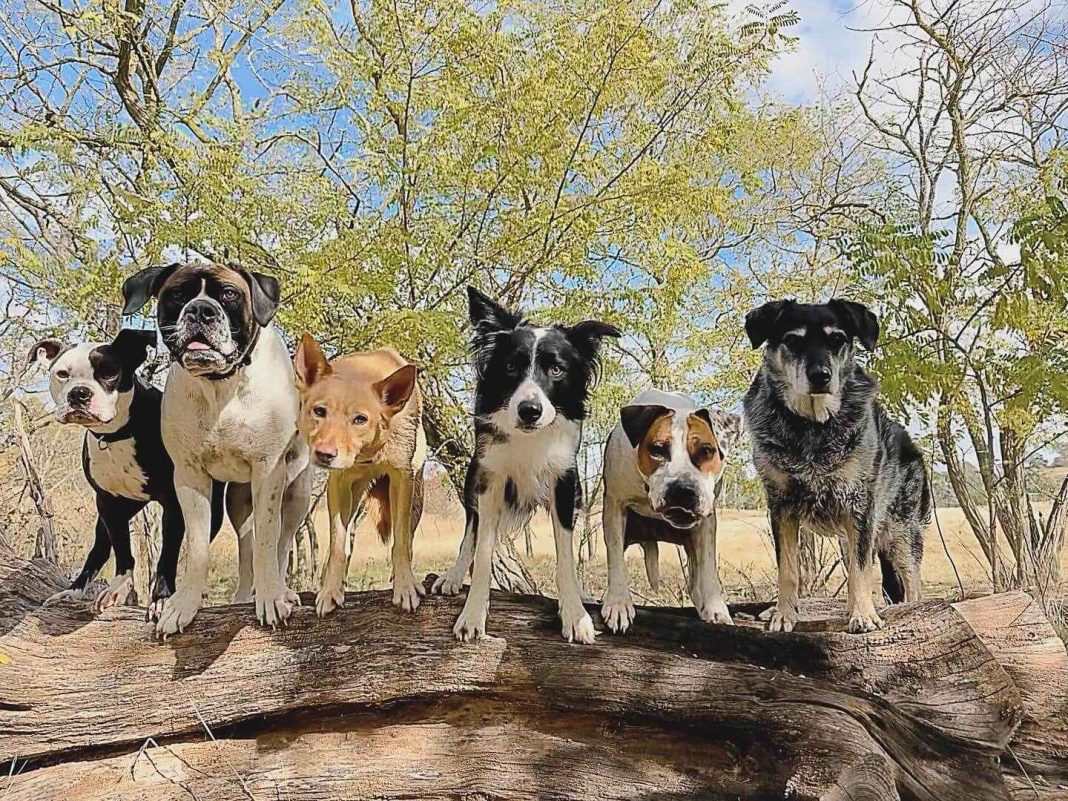Groceries, interest rates – everything seems to be going up, and it is getting harder to make ends meet. So, what does that mean for the members of the family who can’t bring in an income?
The dedicated team at ACT Rescue and Foster (ARF) has noticed an upswing in the number of dogs surrendered in the past 12-18 months. It is never an easy decision to rehome your best friend and many owners explain why they have been driven to this choice.
“One of the reasons we’re hearing a little more recently is the cost-of-living crisis. Essentially what we’re experiencing is a huge number of dogs being surrendered and we’re finding it challenging to find new homes simply because of the volume of dogs,” says Angharad Lodwick, President of ACT Rescue and Foster.
Helping find homes for pets rehomed directly to them and the local pounds, ARF doesn’t store any statistics on the people parting with their pooch but has an idea of the circumstances that brought them there. This includes a relationship breakdown, people moving or downsizing, older people moving into residential care or the passing of the owner.
There has also been an influx of dogs coming in that were purchased during the pandemic lockdown and whose owners no longer have the time for them.
“Or they didn’t invest a lot of time into training the dog during that period and now the dogs are going through teenage years and having behavioural issues.”
ARF currently has 17 pups ready to meet their forever family, behind the scenes they have another 15 who aren’t quite ready. These dogs include those undergoing health issues or additional training. The number of dogs they can help is entirely reliant on the number of foster carers they have and how long the animal stays.
“When we have dogs who have been in care for one or two years, that means that foster carer has had that dog for one to two years and they aren’t able to help other dogs. The longer it takes us to rehome dogs, the fewer dogs we are able to help.”
Housing strays, surrenders and animals who have been seized for their own welfare, Domestic Animal Services, Canberra’s pound Canberra pound is often at capacity with dogs too. The ARF team works closely with their staff to help assess dogs to paint a clear picture of the animal’s requirements for a new home.
“They’ll contact us if they’ve got dogs that seem like that are not coping very well in the pound and if we’ve got foster carers available, we will try and prioritise those ones,” says Ms Lodwick.
With the negative connotation of what a pound is still lingering in the air, the last few years have seen a major cultural shift. The centre houses animals for long terms and tries their hardest to rehome them by promoting them on Instagram.



Also trying to promote some of their longer-term stays, ARF has launched the social media campaign #findingforeverhomes to get the local community on board. Some of their long-term stays include loving lady Dinah who has been with them for two years and goofball Hunter and exuberant ZaaZoo have been looking for a home for over a year.
There are a few ways the community can assist ARF. Ms Lodwick says they are always looking for foster carers, as the more carers they have the more dogs they can help. ARF looks after all the training and covers vet bills and transport, carers help prepare dogs for life in a loving home.
“Being in the pound is quite challenging for a lot of dogs and how dogs present in the pound is often very different to what they’re like in a home environment.”
Gone are the days when only large breed dogs are looking for a home or ending up at the pound, Ms Lodwick says they are seeing all sorts come through.
“We’re seeing a real range of dogs being surrendered at the moment as well…we’ve got working dogs, poodles, terriers, a real mix. It is a bit more likely that a foster carer that already has a dog or has kids would be able to find a dog that would be able to stay with them.”
There is no end for the help ARF needs says Ms Lodwick. If you can’t help at home, you could donate financially as they are also feeling the pressure. They need funds for vet bills, temporary boarding and additional training, particularly for the pandemic pooches.
“Especially if they have just been left by themselves in the backyard and haven’t been exposed to very many dogs, they can get quite nervous out and about.”
The best home for a dog is the one they were first brought home to; Ms Lodwick says people often think rehoming will be the best outcome for the dog but this isn’t always true.
“There are so many dogs to rehome at the moment, but there aren’t enough homes available to do that. So, if you can really set yourself up for success early on. The better home is going to be staying with you if possible.”
A firm believer of the adopt don’t shop mantra, Ms Lodwick implores people to look into adopting a dog. She says you get a clear idea of their personality and needs when you get a settled dog and not a puppy. Whether it’s adopted or from a breeder, be realistic about the amount of work you are willing to put in. Ms Lodwick says this is a common oversight for dog owners.
“They might take the dog to puppy school, but they don’t stick with obedience training. They don’t think about dog sports, they don’t think about that long-term ongoing training and exercise.”
Also ensure that your pet will be looked after if something were to happen to you, your relationship breaks down or you need to move.
“There is stuff that people can do to try and help us but there is lots that people can do to help themselves and their best friend,” says Ms Lodwick.
Help find a forever home for one of ARF’s beautiful pooches; fosterdogs.org
Canberra Daily is keen to hear from you about a story idea in the Canberra and surrounding region. Click here to submit a news tip.



